- Virtually no sure things this year, say observers
- "Argo" is front-runner for best picture thanks to string of wins
- But Ben Affleck film didn't get best director nomination, that hurts
- If "Argo" falters, expect "Silver Linings Playbook" or "Life of Pi" to win
(CNN) -- Back in September, it was going to be "Silver Linings Playbook."
Then it was "Argo."
Then "Les Miserables." "Zero Dark Thirty" picked up some steam. "Lincoln" got raves.
Then back to "Les Miz." Over to "Lincoln." And, finally, the buzz settled on "Argo."
This year's Oscar race has been anything but predictable.
As festival chatter has given way to box office tallies, critics' honors and guild awards, the perceived leaders for best picture have changed almost as often as the country's top-ranked college basketball team. The Academy of Motion Picture Arts and Sciences further muddied matters when it failed to nominate the directors of four best picture nominees -- "Argo," "Zero Dark Thirty," "Les Miserables" and "Django Unchained" -- for best director.
Bad for the conventional wisdom. Good for competition.
"I love all the suspense this year," said Oscar watcher Tom O'Neil, who runs the GoldDerby.com awards blog. "There are a lot of precedents being set."
For example, he observes, usually the film with the most nominations is the front-runner for best picture. This year, the most-nominated film is Steven Spielberg's "Lincoln," which earned 12 nods. But the movie that's shown the most staying power at the various awards ceremonies since then -- including the Golden Globes, SAG Awards and the Producers Guild -- has been Ben Affleck's "Argo," making the latter film the front-runner for the big prize Sunday night. "Argo" is up for seven Oscars.
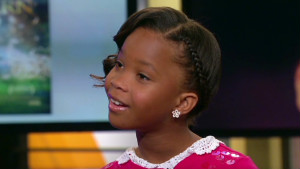 Quvenzhane Wallis captures Oscar's heart
Quvenzhane Wallis captures Oscar's heart

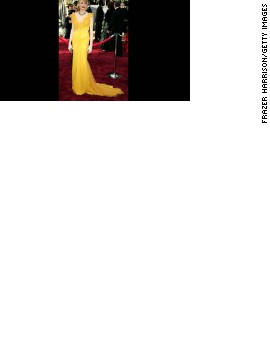
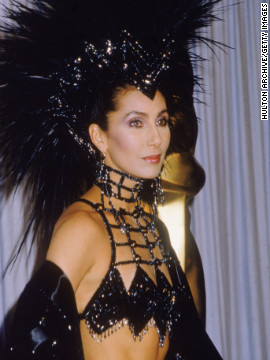


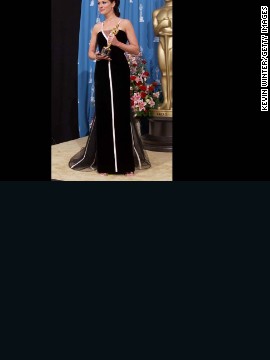

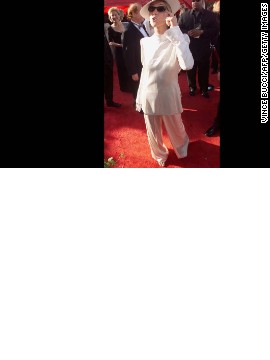

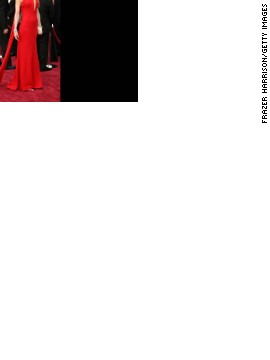

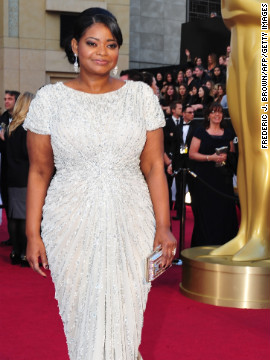

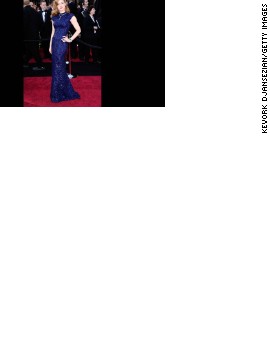
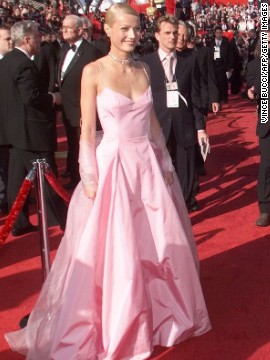

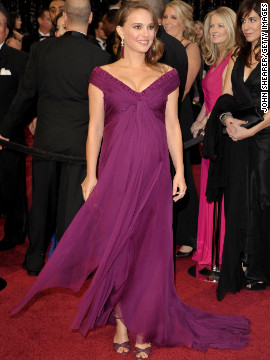
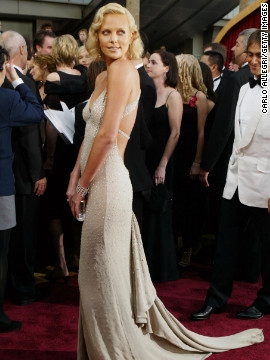
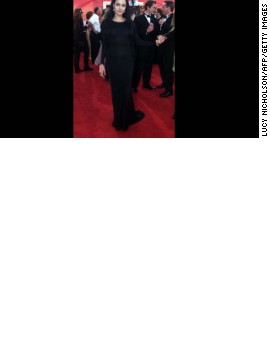
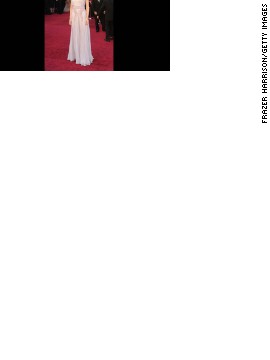
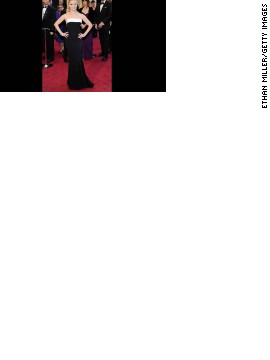
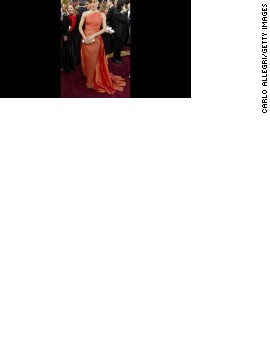
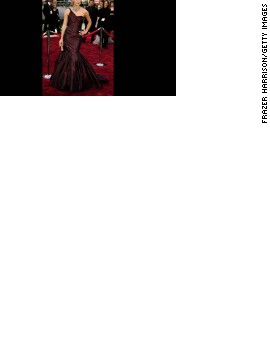
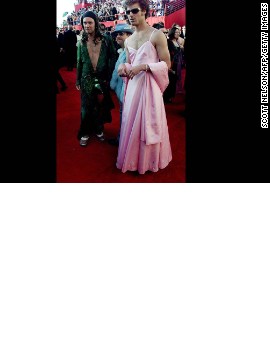
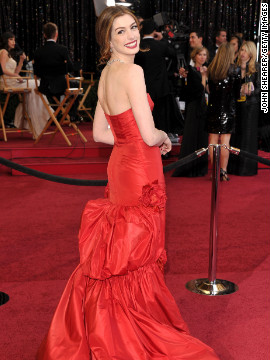
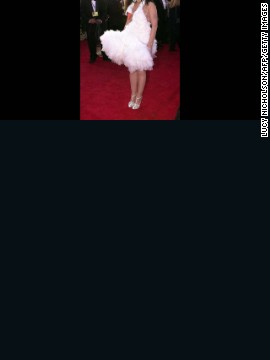
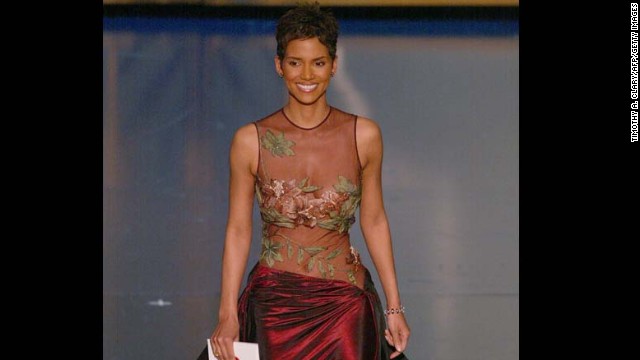 Memorable Oscar fashion
Memorable Oscar fashion
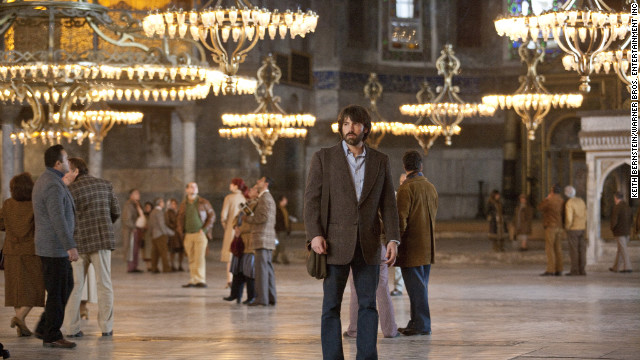 The Oscar nominees for best picture take moviegoers all over the world -- such as Istanbul's Hagia Sophia, where "Argo" had a scene. Indeed, while much of "Argo" is set in Iran, filming for many of its scenes took place in Turkey. Locations in and around Washington also appear in the film directed by and starring Ben Affleck.
The Oscar nominees for best picture take moviegoers all over the world -- such as Istanbul's Hagia Sophia, where "Argo" had a scene. Indeed, while much of "Argo" is set in Iran, filming for many of its scenes took place in Turkey. Locations in and around Washington also appear in the film directed by and starring Ben Affleck.
 The Hagia Sophia is a sixth-century Byzantine church that was converted to a mosque under the Ottoman Empire and now operates as a museum. In "Argo," Affleck plays a CIA operative who meets a contact inside the historic building.
The Hagia Sophia is a sixth-century Byzantine church that was converted to a mosque under the Ottoman Empire and now operates as a museum. In "Argo," Affleck plays a CIA operative who meets a contact inside the historic building.
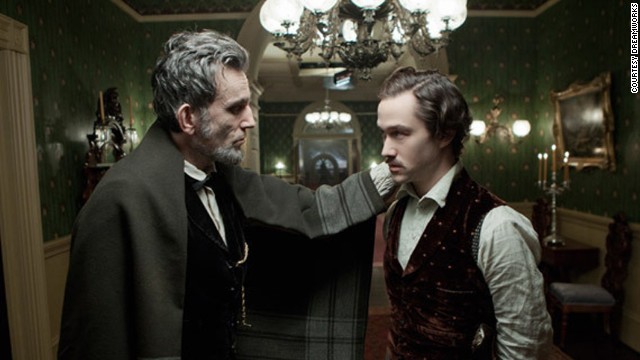 "Lincoln," starring Daniel Day Lewis and Joseph Gordon-Levitt, was shot primarily in Virginia.
"Lincoln," starring Daniel Day Lewis and Joseph Gordon-Levitt, was shot primarily in Virginia.
 In "Lincoln," the Virginia Capitol stands in for the U.S. Capitol.
In "Lincoln," the Virginia Capitol stands in for the U.S. Capitol.
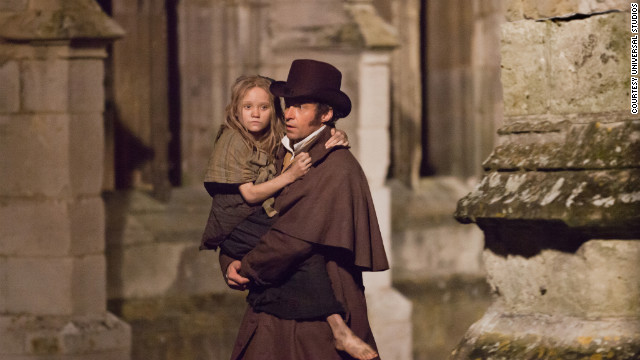 Paris is one of the big stars in the movie adaptation of "Les Miserables." Hugh Jackman plays Jean Valjean, and Isabelle Allen plays a young Cosette.
Paris is one of the big stars in the movie adaptation of "Les Miserables." Hugh Jackman plays Jean Valjean, and Isabelle Allen plays a young Cosette.
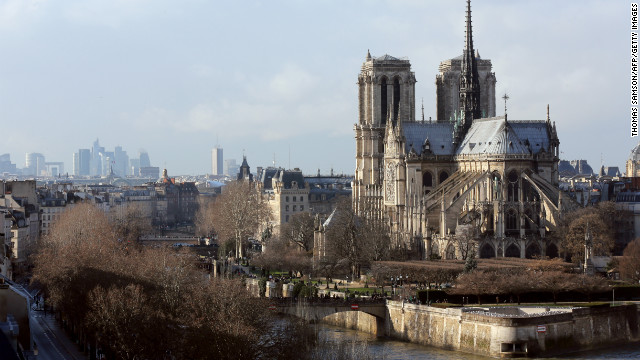 While much of Paris changed dramatically with the city's late 19th-century modernization, Ile de la Cite and its Notre Dame cathedral are still much as they were during the movie's time.
While much of Paris changed dramatically with the city's late 19th-century modernization, Ile de la Cite and its Notre Dame cathedral are still much as they were during the movie's time.
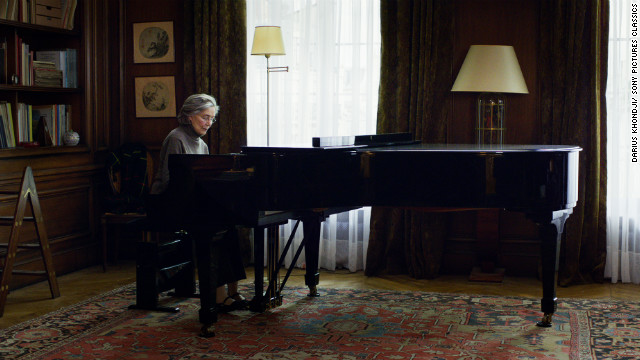 Another Best Picture contender, "Amour," is set inside a Paris apartment.
Another Best Picture contender, "Amour," is set inside a Paris apartment.
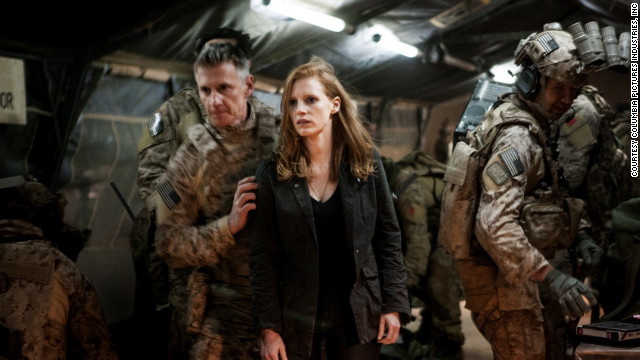 "Zero Dark Thirty," tracing the hunt for Osama bin Laden, is set largely in Pakistan and Afghanistan. There are U.S. State Department travel warnings for those countries right now, and many of the film's Pakistan scenes were shot in India.
"Zero Dark Thirty," tracing the hunt for Osama bin Laden, is set largely in Pakistan and Afghanistan. There are U.S. State Department travel warnings for those countries right now, and many of the film's Pakistan scenes were shot in India.
 Local actors perform on the set of "Zero Dark Thirty" in Chandigarh, India, in March 2012.
Local actors perform on the set of "Zero Dark Thirty" in Chandigarh, India, in March 2012.
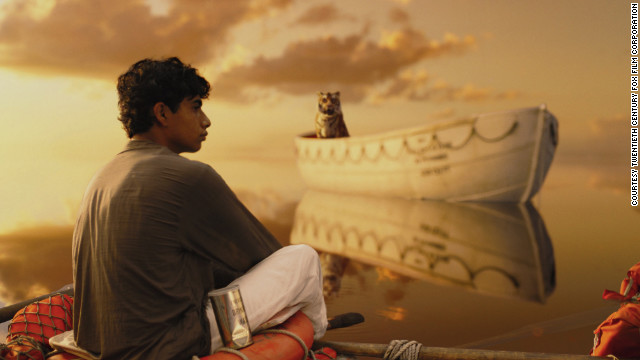 "Life of Pi," starring Suraj Sharma, was shot in a number of cities, including Puducherry on India's southeast coast.
"Life of Pi," starring Suraj Sharma, was shot in a number of cities, including Puducherry on India's southeast coast.
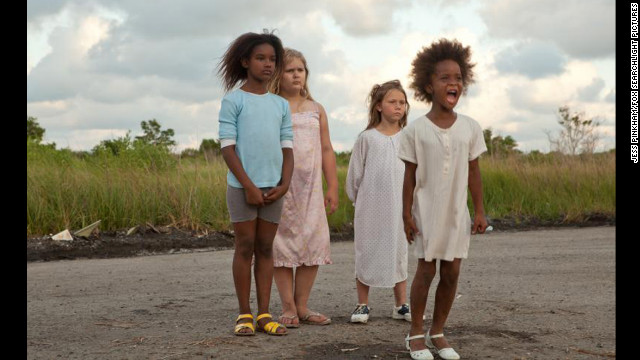 Young Best Actress nominee Quvenzhane Wallis, right, stars in Best Picture nominee "Beasts of the Southern Wild," set in a fictional marshy area called the Bathtub.
Young Best Actress nominee Quvenzhane Wallis, right, stars in Best Picture nominee "Beasts of the Southern Wild," set in a fictional marshy area called the Bathtub.
 "Beasts of the Southern Wild" was filmed among the bayous and towns of southeast Louisiana.
"Beasts of the Southern Wild" was filmed among the bayous and towns of southeast Louisiana.
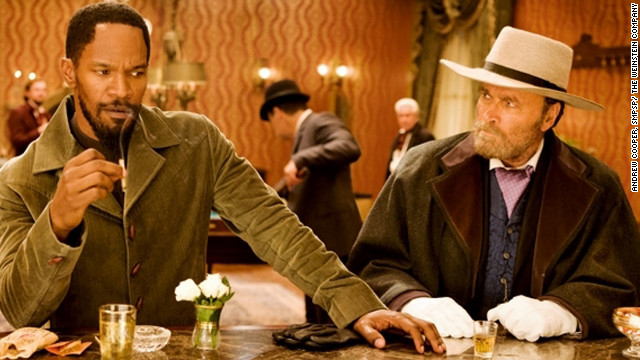 Much of Quentin Tarantino's "Django Unchained," starring Jamie Foxx, left, was filmed in the Louisiana town of Edgard.
Much of Quentin Tarantino's "Django Unchained," starring Jamie Foxx, left, was filmed in the Louisiana town of Edgard.
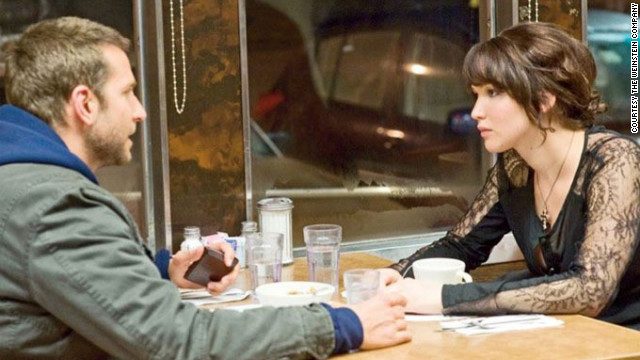 The Llanerch Diner in the Philadelphia suburb of Upper Darby plays a role in "Silver Linings Playbook," starring Bradley Cooper and Jennifer Lawrence.
The Llanerch Diner in the Philadelphia suburb of Upper Darby plays a role in "Silver Linings Playbook," starring Bradley Cooper and Jennifer Lawrence.
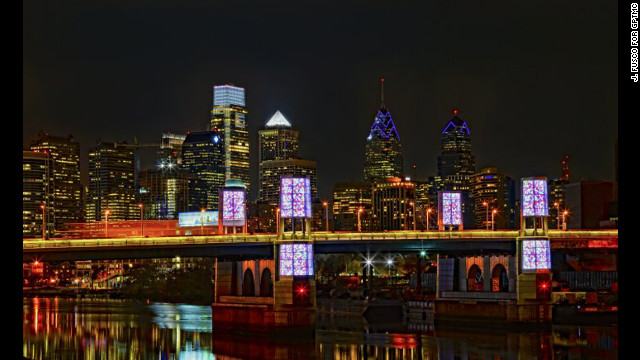 Another Philly location, Ballroom at the Ben in the former Benjamin Franklin Hotel, hosts the film's entertaining dance competition scene.
Another Philly location, Ballroom at the Ben in the former Benjamin Franklin Hotel, hosts the film's entertaining dance competition scene.
 Inspiration at the movies
Inspiration at the movies
Moreover, Affleck's picture has dominated despite being snubbed by the academy in several categories, most notably best director. (In fact, among the Big Six categories of picture, director, actor, actress, supporting actor and supporting actress, "Argo" has just two nominations, three fewer than "Lincoln," despite a top-notch cast.) In the entire history of the Oscars, just three films have won best picture without a directing nomination. The most recent was 1989's "Driving Miss Daisy," which won the top prize despite director Bruce Beresford getting shut out.
Unlike Beresford, however, Affleck received the support of his peers at the Directors Guild of America, which awarded him its top prize a few weeks ago; Beresford didn't even make the DGA cut in 1989.
Is the rank-and-file trying to send the academy a message?
O'Neil believes they are.
Years ago, he points out, a situation like Affleck's Oscar snub would have been noted and then forgotten in the face of a much-nominated film such as "Lincoln." Today, with social media and blogs constantly debating the Oscars' merit, the argument isn't over until PricewaterhouseCoopers finishes tallying the votes.
"That's evidence of how different the Oscars are today," he said.
In addition, the DGA award is about the many over the few: The DGA is voted on by more than 14,000 members of the directors' guild -- a group that includes assistants, TV specialists and other forms of helmers -- while the Oscar nominees for best director were selected by the roughly 370 members of the academy's directors' branch, a more homogenous group, said O'Neil.
Clayton Davis, who oversees AwardsCircuit.com, has another theory: that "Argo" is everybody's alternative. Given the way the Oscars are tallied, with voters ranking their picks from favorite to least favorite, a film with a lot of twos and threes will do better than a film that some people love and others loathe.
"You'll find your haters for 'Lincoln,' you'll find your haters for 'Zero Dark Thirty,' you'll find your haters for 'Les Miz.' But everybody, for the most part, at least says 'Argo' was good," he said. "So in a preferential balloting system 'Argo's' not likely to have a lot of No. 9 votes. And in a preferential balloting system, two, three and four can easily make up the winner."
Lifetime achievements and new faces
This year, at least, almost all the best picture nominees have a rooting interest. As opposed to recent years, when many nominees struggled to crack even $50 million domestically, this time all but three of the nine best picture films -- "Beasts of the Southern Wild," "Amour" and "Zero Dark Thirty" -- have topped $100 million at the North American box office. Some have established financial benchmarks: "Django Unchained" is Quentin Tarantino's highest-grossing film ever, and "Silver Linings Playbook" is tops among David O. Russell's films.
And though the Oscars are Hollywood-centric, the global market is always in studios' thoughts. In that respect, "Life of Pi" has been a juggernaut, making almost $600 million worldwide since its release.
"Life of Pi," in fact, may sneak into the winner's circle if the "Argo" bandwagon slows. One academy voter interviewed by CNN said "Pi," directed by Ang Lee, was his favorite film among the nominees; "Argo" didn't make his top three. (Neither did "Lincoln," for that matter.) Davis adds that anybody voting for Spielberg will likely vote for "Lincoln," and because "Lincoln's" momentum has halted he suspects Spielberg will lose best director to Lee or Russell. Lee, whose film was a special-effects marvel, may have the many members of the technical branches behind him.

"If Spielberg wins director, he's going to have three director wins, but only one of his films ('Schindler's List') will have won best picture in his career," he said. "That would be a little crazy. So I think Russell and Ang Lee are coming up strong."
O'Neil agrees. "Life of Pi" also has the second-most Oscar nominations this year, it received 11, and "its back story is extraordinary," since Yann Martel's best-selling 2001 novel was long considered unfilmable, he said.
Best picture isn't the only category without a shoo-in. In fact, with the exception of best actor, which has been Daniel Day-Lewis' race to lose since the "Lincoln" trailers first hit the Web, the other contests are still anybody's guess.
Jennifer Lawrence ("Silver Linings Playbook") was long considered the front-runner for best actress. She fits several of the academy's biases -- she's young and rising, she's box office gold (both "Playbook" and "The Hunger Games" were box office successes) and she's a critical darling. Past examples of her type include Gwyneth Paltrow, Julia Roberts and Reese Witherspoon.
But there's also a tendency for the academy to offer "lifetime achievement awards," giving Oscars to veteran performers who have been overlooked in the past. (See Jessica Tandy and Geraldine Page.) If that's the way things are going, and O'Neil is seeing movement in that direction, expect 85-year-old Emmanuelle Riva to take home the golden statue.
"There's been a real surge among academy members. She suddenly has the cool factor," O'Neil said.
After wins for Lawrence and Jessica Chastain ("Zero Dark Thirty") at the various industry get-togethers, Riva suddenly burst from the pack with a win at the BAFTAs, the British Oscars. Her exposure wasn't hurt when the Hollywood Reporter put together a 2,000-word profile on the famed French actress, perhaps best known in the United States for Alain Resnais' inscrutable 1959 classic "Hiroshima, Mon Amour" and the "Blue" chapter of Krzysztof Kieslowski's "Three Colors" trilogy.
On the other side of the age spectrum is "Beasts of the Southern Wild's" Quvenzhane Wallis, who was just 6 when she filmed the little indie. (She's 9 now and still the youngest best actress nominee ever.) Though some commentators have raised questions about whether a 6-year-old can actually act -- or is, essentially, just being herself -- there's no question the academy loves honoring youngsters: usually with just a nomination, but sometimes more. Just ask Tatum O'Neal and Anna Paquin.
A first for James Bond?
Similarly, though Anne Hathaway ("Les Miserables") has been close to a lock for best supporting actress, there's an outside chance that Sally Field ("Lincoln") could take the prize. It's her first nomination since she won best actress for 1984's "Places in the Heart," which prompted her famous "You like me! Right now, you like me!" speech.
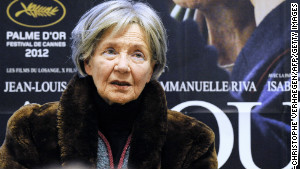
But the race hardest to predict is probably best supporting actor. All five nominees have won before; all five have arguments in their favor.
The sentimental favorite is probably Robert De Niro, who's made more heartfelt guest appearances on behalf of "Silver Linings Playbook" than he has for any number of his other recent films. Besides, as "Playbook's" studio head (and always shrewd Oscar campaigner) Harvey Weinstein told CNN, "Bob De Niro hasn't won an Oscar in 32 years." (Yes, it's true: "Raging Bull" was De Niro's last win.)
But don't count out Alan Arkin ("Argo"), Tommy Lee Jones ("Lincoln"), Christoph Waltz ("Django Unchained") or even Philip Seymour Hoffman ("The Master"). Arkin is "Argo's" only acting nomination; the film's bandwagon could carry him to victory. And Jones, Hoffman and Waltz have all won trophies during this awards season.
Davis' money is on Waltz. The actor won both a BAFTA and Golden Globe for his performance as a 19th-century bounty hunter, and he's seen as more appreciative than Jones or Hoffman, neither of whom gave speeches when they won their honors, said Davis.
Other awards, the ones that pay off in everybody's Oscar pool, are also up for grabs. Will best film editing go to "Argo," the taut minimalism of "Zero Dark Thirty" or the careful rhythms of "Life of Pi"? Will animated feature honor the Pixar masters behind "Brave" or the off-center, long-gestating Tim Burton project "Frankenweenie?" Will Adele's James Bond theme "Skyfall" win best song, or will it go to this year's host, Seth MacFarlane, for his "Everybody Needs a Best Friend"?
Don't rule out MacFarlane; his co-writer is Walter Murphy, who once turned Beethoven's Fifth Symphony into a No. 1 pop hit. On the other hand, no James Bond theme -- not "Goldfinger," not "Live and Let Die," not "Nobody Does It Better," not even anything by Matt Munro, A-ha or Madonna -- has ever won an Oscar, so 007 is overdue.
The uncertainty will make for some surprise winners, both in the Dolby Theatre (formerly the Kodak) and in wagering living rooms across America.
"I've spoken to several academy members, and they're all over the place, too," said Davis.
It's no wonder that the nominees have been modest and circumspect about their chances, nobody more so than Affleck. Though he's a producer of "Argo," which means he'll get to accept a best picture trophy if the film wins, he's attracted far more attention for being ignored for best director than he ever would have for being nominated.
"I just feel so incredibly honored to be nominated as a producer for this movie, to be here at the big party," he told reporters at the Oscar luncheon in early February. "I don't get into worrying too much about who got what and who didn't get what. I mean, I've had many, many, many, many, many, many years watching from home."
But despite some observers already instructing Affleck to prepare yet another list of thank-yous, don't assume "Argo" the movie will reign as triumphant as its risk-taking characters, said Davis. Sure, it's good. But best picture? That's something else entirely.
"I'm hearing a little bit, that when 'Argo' started winning everything, some people started scratching their heads," he said. "'Really? That's what I'm supposed to be picking?'"
The 85th Academy Awards are scheduled for Sunday on ABC. The show will air from the Dolby Theatre in Los Angeles.
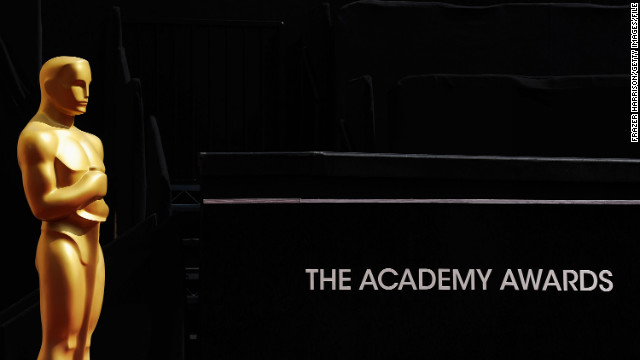 With just a few days left before awards season officially comes to a close, the Oscars race is closer than ever. We put the top categories to the test to determine who should be honored with an Academy Award, versus the films that will walk away with a statue this Sunday. Want to weigh in yourself?
With just a few days left before awards season officially comes to a close, the Oscars race is closer than ever. We put the top categories to the test to determine who should be honored with an Academy Award, versus the films that will walk away with a statue this Sunday. Want to weigh in yourself? 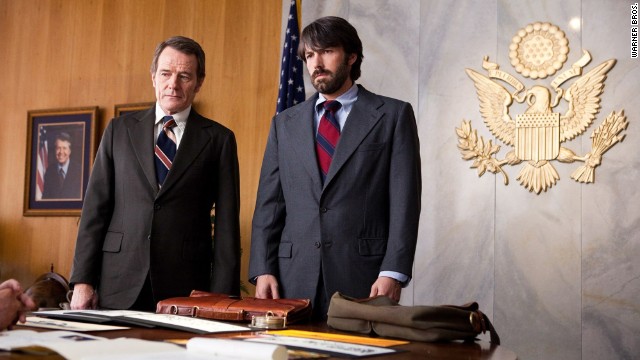 What a difference a few awards shows make! In the weeks since the Golden Globes, the Oscar outlook has shifted dramatically. The tight competition between "Lincoln" and "Zero Dark Thirty" has made way for "Argo" to come from behind as the movie most likely to win Best Picture (even if Ben Affleck was snubbed with no nomination for himself as Best Director). "The thing about this movie, we're solving a really horrible problem creatively using our imagination instead of bullets," said co-star Tate Donovan (who plays the leader of the "houseguests").
What a difference a few awards shows make! In the weeks since the Golden Globes, the Oscar outlook has shifted dramatically. The tight competition between "Lincoln" and "Zero Dark Thirty" has made way for "Argo" to come from behind as the movie most likely to win Best Picture (even if Ben Affleck was snubbed with no nomination for himself as Best Director). "The thing about this movie, we're solving a really horrible problem creatively using our imagination instead of bullets," said co-star Tate Donovan (who plays the leader of the "houseguests").
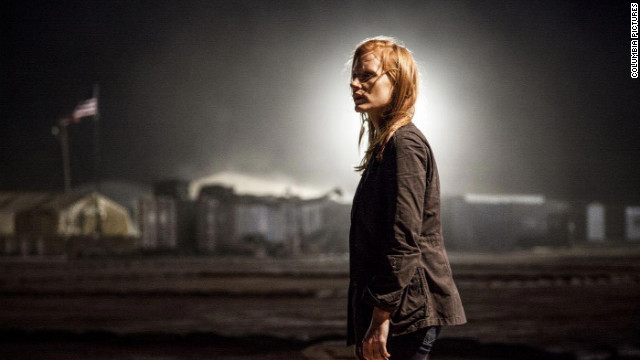 That is opposed to "Zero Dark Thirty," under fire for its depiction of torture. "Argo," a lesser-known CIA story, has had less scrutiny for its version of the truth and benefits from a pro-Hollywood stance. Still, the much more gripping "Zero Dark Thirty" is the superior exercise and should win. Other contenders include "Amour," "Beasts of the Southern Wild," "Django Unchained," "Les Miserables," "Life of Pi" and "Silver Linings Playbook."
That is opposed to "Zero Dark Thirty," under fire for its depiction of torture. "Argo," a lesser-known CIA story, has had less scrutiny for its version of the truth and benefits from a pro-Hollywood stance. Still, the much more gripping "Zero Dark Thirty" is the superior exercise and should win. Other contenders include "Amour," "Beasts of the Southern Wild," "Django Unchained," "Les Miserables," "Life of Pi" and "Silver Linings Playbook."
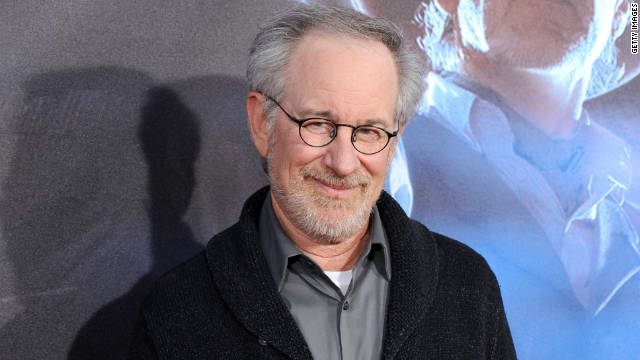 When the Best Director category nominations were announced, it was all about the snubs: No Ben Affleck! No Kathryn Bigelow! No Tom Hooper! No Quentin Tarantino! Instead, we got Michael Haneke for "Amour," first-time director Benh Zeitlin for "Beasts of the Southern Wild," Ang Lee for "Life of Pi," Steven Spielberg for "Lincoln" and David O. Russell for "Silver Linings Playbook." Now that the tide has turned in favor of "Argo" for Best Picture, this is Steven Spielberg's category to lose ...
When the Best Director category nominations were announced, it was all about the snubs: No Ben Affleck! No Kathryn Bigelow! No Tom Hooper! No Quentin Tarantino! Instead, we got Michael Haneke for "Amour," first-time director Benh Zeitlin for "Beasts of the Southern Wild," Ang Lee for "Life of Pi," Steven Spielberg for "Lincoln" and David O. Russell for "Silver Linings Playbook." Now that the tide has turned in favor of "Argo" for Best Picture, this is Steven Spielberg's category to lose ...
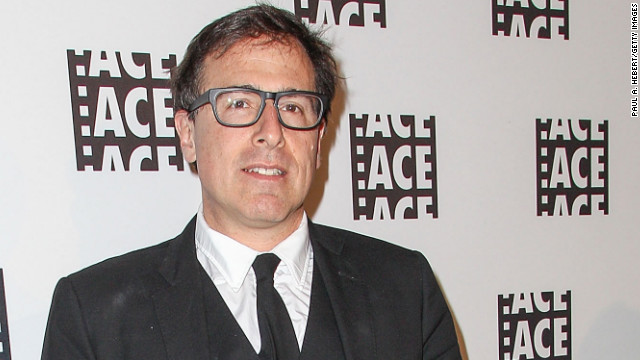 ... perhaps to "Silver Linings Playbook," the first film in 31 years to be nominated in all four acting categories (the last one was "Reds" in 1981). That achievement should be recognized by honoring its director and his work with his cast. "The movie's your child, all the actors are your children, and you want to stay invested for them," Russell said. "All the rest ultimately doesn't matter."
... perhaps to "Silver Linings Playbook," the first film in 31 years to be nominated in all four acting categories (the last one was "Reds" in 1981). That achievement should be recognized by honoring its director and his work with his cast. "The movie's your child, all the actors are your children, and you want to stay invested for them," Russell said. "All the rest ultimately doesn't matter."
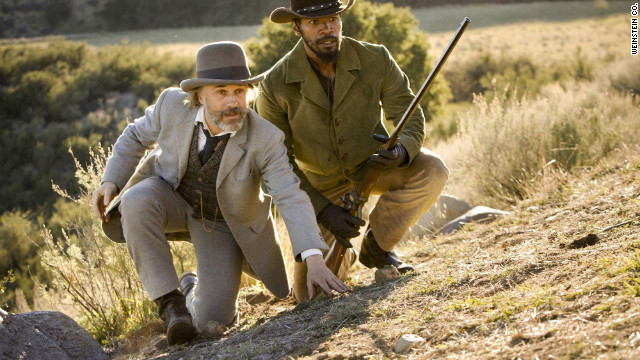 Best Original Screenplay is a tough category to predict this year. Quentin Tarantino's "Django Unchained" is a strong contender, given his Golden Globe trophy, but that was an upset. This might be the category that allows "Zero Dark Thirty" to be honored in lieu of Best Picture, in recognition of Mark Boal's extensive original reporting for the film (even if what he dug up remains in dispute regarding the use of torture). "If anyone's asking, we stand by the film," Boal said. "The film allows us to look back at the past in a way that gives us a clear-sighted appraisal of the future." In his favor: Boal won Sunday night at the Writers Guild Awards.
Best Original Screenplay is a tough category to predict this year. Quentin Tarantino's "Django Unchained" is a strong contender, given his Golden Globe trophy, but that was an upset. This might be the category that allows "Zero Dark Thirty" to be honored in lieu of Best Picture, in recognition of Mark Boal's extensive original reporting for the film (even if what he dug up remains in dispute regarding the use of torture). "If anyone's asking, we stand by the film," Boal said. "The film allows us to look back at the past in a way that gives us a clear-sighted appraisal of the future." In his favor: Boal won Sunday night at the Writers Guild Awards.
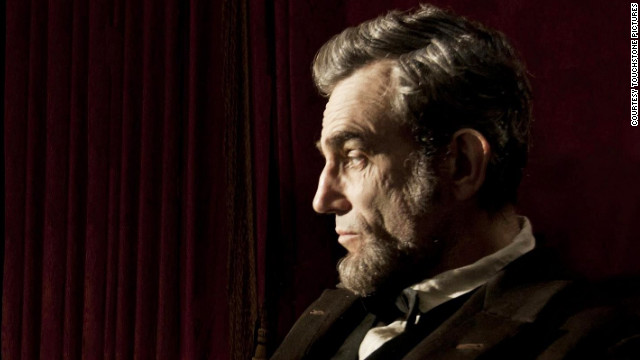 Adapting a screenplay is not necessarily easier than writing something new, especially when it comes to making a taut thriller out of a memoir (Chris Terrio's "Argo"), a fantasy from a play (Zeitlin and Lucy Alibar's "Beasts of the Southern Wild," from Alibar's earlier work), a fable from a work of magical realism (David Magee's "Life of Pi," from Yann Martel's novel), a procedural from a dense history (Tony Kushner's "Lincoln," from Doris Kearns Goodwin's biography) and a dramedy from a first-person novel (David O. Russell's "Silver Linings Playbook," from Matthew Quick's book). Kushner is the likely winner, with Russell close behind.
Adapting a screenplay is not necessarily easier than writing something new, especially when it comes to making a taut thriller out of a memoir (Chris Terrio's "Argo"), a fantasy from a play (Zeitlin and Lucy Alibar's "Beasts of the Southern Wild," from Alibar's earlier work), a fable from a work of magical realism (David Magee's "Life of Pi," from Yann Martel's novel), a procedural from a dense history (Tony Kushner's "Lincoln," from Doris Kearns Goodwin's biography) and a dramedy from a first-person novel (David O. Russell's "Silver Linings Playbook," from Matthew Quick's book). Kushner is the likely winner, with Russell close behind.
 But it would be nice if the modest "Beasts" could take it home. "I truthfully had no expectation for this movie other than to make it, and even then, I wasn't sure even that would happen," Alibar said. "I'm still high on my movie getting made, and I'm not expecting anything."
But it would be nice if the modest "Beasts" could take it home. "I truthfully had no expectation for this movie other than to make it, and even then, I wasn't sure even that would happen," Alibar said. "I'm still high on my movie getting made, and I'm not expecting anything."
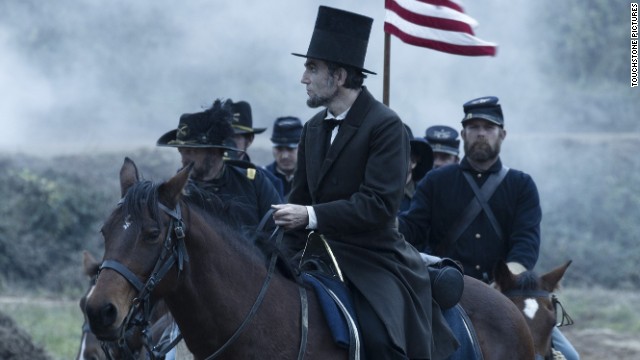 Daniel Day-Lewis could make history with his third Best Actor Oscar win with "Lincoln," and the other actors in his category don't stand a chance of breaking his streak. To think Day-Lewis originally turned down the part a few times! "If you didn't know what a f***ing idiot I was before, you know now," the actor joked at the New York Film Critics Circle Awards, as he had to be convinced to play the 16th president. In any other year, this would be a tight race, considering Bradley Cooper's amazing portrayal of a man battling bipolar disorder in "Silver Linings Playbook," Hugh Jackman's musical performance in "Les Miserables," Joaquin Phoenix's role as an unbalanced veteran in "The Master" and Denzel Washington's alcoholic pilot in "Flight."
Daniel Day-Lewis could make history with his third Best Actor Oscar win with "Lincoln," and the other actors in his category don't stand a chance of breaking his streak. To think Day-Lewis originally turned down the part a few times! "If you didn't know what a f***ing idiot I was before, you know now," the actor joked at the New York Film Critics Circle Awards, as he had to be convinced to play the 16th president. In any other year, this would be a tight race, considering Bradley Cooper's amazing portrayal of a man battling bipolar disorder in "Silver Linings Playbook," Hugh Jackman's musical performance in "Les Miserables," Joaquin Phoenix's role as an unbalanced veteran in "The Master" and Denzel Washington's alcoholic pilot in "Flight."
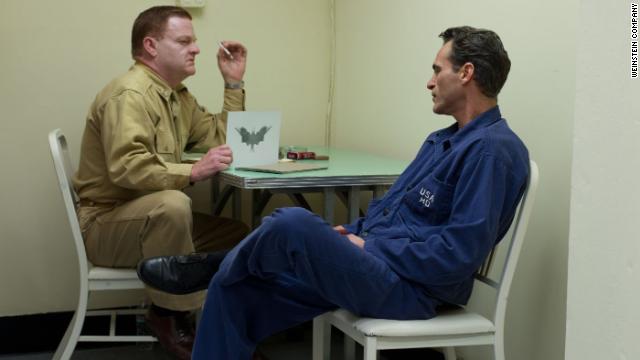 If -- and it's a big if -- Day-Lewis doesn't take home Oscar, it should go to Phoenix, who is just as Method and devoted to his craft as the man playing Lincoln. In any other year, he would.
If -- and it's a big if -- Day-Lewis doesn't take home Oscar, it should go to Phoenix, who is just as Method and devoted to his craft as the man playing Lincoln. In any other year, he would.
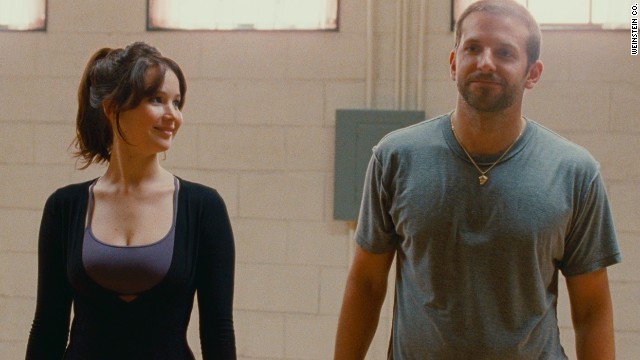 The race for Best Actress seems a foregone conclusion, with Jennifer Lawrence as the favorite to win for "Silver Linings Playbook." "Amour's" Emmanuelle Riva (86 on Oscar night) and "Beasts' " Quvenzhane Wallis (6 when she shot the film) are the oldest and youngest nominees ever in this category, and Riva -- who won at the BAFTAs -- might be the upset. Still, Lawrence will and should win. "My first scene was screaming and crying a million different versions of the same speech," she said. "It was really intense. I've never worked this way before, where the director is shouting at you, 'No, say this!' But there's never a moment where you're dead behind the eyes."
The race for Best Actress seems a foregone conclusion, with Jennifer Lawrence as the favorite to win for "Silver Linings Playbook." "Amour's" Emmanuelle Riva (86 on Oscar night) and "Beasts' " Quvenzhane Wallis (6 when she shot the film) are the oldest and youngest nominees ever in this category, and Riva -- who won at the BAFTAs -- might be the upset. Still, Lawrence will and should win. "My first scene was screaming and crying a million different versions of the same speech," she said. "It was really intense. I've never worked this way before, where the director is shouting at you, 'No, say this!' But there's never a moment where you're dead behind the eyes."
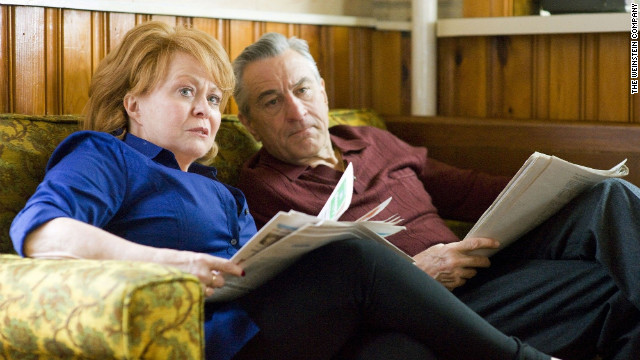 The award for Best Actor in a Supporting Role is much harder to predict. All five nominees are Oscar winners, the first time that's happened in an acting category. And there's no clear-cut favorite: Tommy Lee Jones, who was the former front-runner, won for "Lincoln" at the SAG Awards; Christoph Waltz won for "Django Unchained" at the Golden Globes and BAFTAs; and Philip Seymour Hoffman won for "The Master" at the Critics Choice Awards. Alan Arkin, however, hasn't won anything for "Argo," and neither has Robert De Niro for "Silver Linings Playbook." Yet De Niro, who hasn't had an Oscar nod since "Cape Fear" in 1991, remains a strong possibility.
The award for Best Actor in a Supporting Role is much harder to predict. All five nominees are Oscar winners, the first time that's happened in an acting category. And there's no clear-cut favorite: Tommy Lee Jones, who was the former front-runner, won for "Lincoln" at the SAG Awards; Christoph Waltz won for "Django Unchained" at the Golden Globes and BAFTAs; and Philip Seymour Hoffman won for "The Master" at the Critics Choice Awards. Alan Arkin, however, hasn't won anything for "Argo," and neither has Robert De Niro for "Silver Linings Playbook." Yet De Niro, who hasn't had an Oscar nod since "Cape Fear" in 1991, remains a strong possibility.
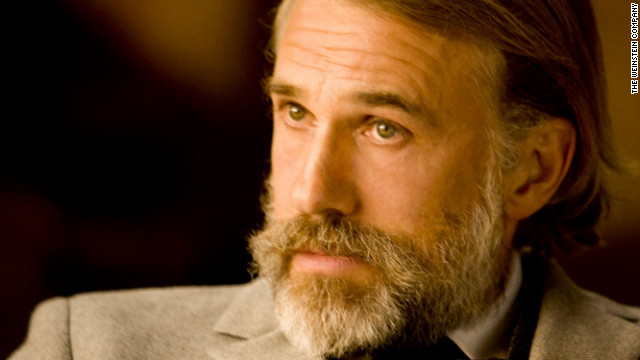 It's impossible to say who will win, only who should: Waltz. His "Django" bounty hunter, despite being a foreigner, proves more witty and articulate than anyone else in the film -- and the other films.
It's impossible to say who will win, only who should: Waltz. His "Django" bounty hunter, despite being a foreigner, proves more witty and articulate than anyone else in the film -- and the other films.
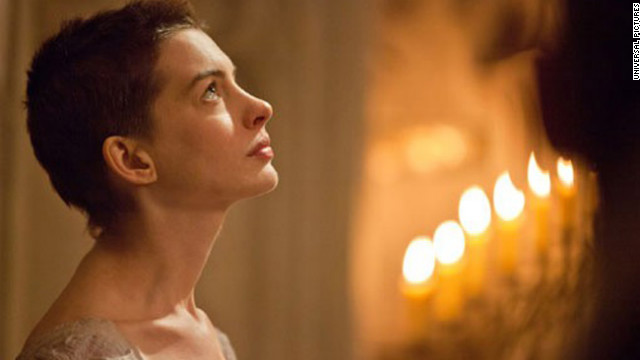 Anne Hathaway is widely considered a lock for Best Actress in a Supporting Role, even though her competition includes Amy Adams for "The Master," Sally Field for "Lincoln," Helen Hunt for "The Sessions" and Jacki Weaver for "Silver Linings Playbook." Hathaway has been sweeping the Golden Globes, SAG, Critics' Choice and BAFTA Awards, but she's not entirely unbeatable: She did not win the other critics' group awards (which honored Field and Adams instead). And Hathaway is nervous. "I mean, getting up in front of the entire world, trying not to look like a fool?" she said. "Nothing outside the ordinary!"
Anne Hathaway is widely considered a lock for Best Actress in a Supporting Role, even though her competition includes Amy Adams for "The Master," Sally Field for "Lincoln," Helen Hunt for "The Sessions" and Jacki Weaver for "Silver Linings Playbook." Hathaway has been sweeping the Golden Globes, SAG, Critics' Choice and BAFTA Awards, but she's not entirely unbeatable: She did not win the other critics' group awards (which honored Field and Adams instead). And Hathaway is nervous. "I mean, getting up in front of the entire world, trying not to look like a fool?" she said. "Nothing outside the ordinary!"
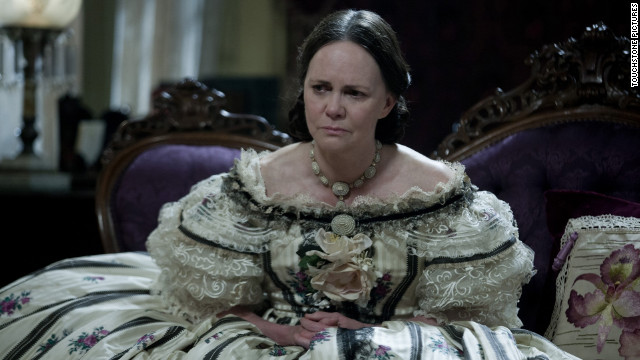 But wouldn't it be extraordinary if someone who actually had more screen time in her own film could be an upset in this category? Field played a character (Mary Todd Lincoln) who knew that history might regard her as unlikeable. Wouldn't it be something if it turned out
But wouldn't it be extraordinary if someone who actually had more screen time in her own film could be an upset in this category? Field played a character (Mary Todd Lincoln) who knew that history might regard her as unlikeable. Wouldn't it be something if it turned out 






















































